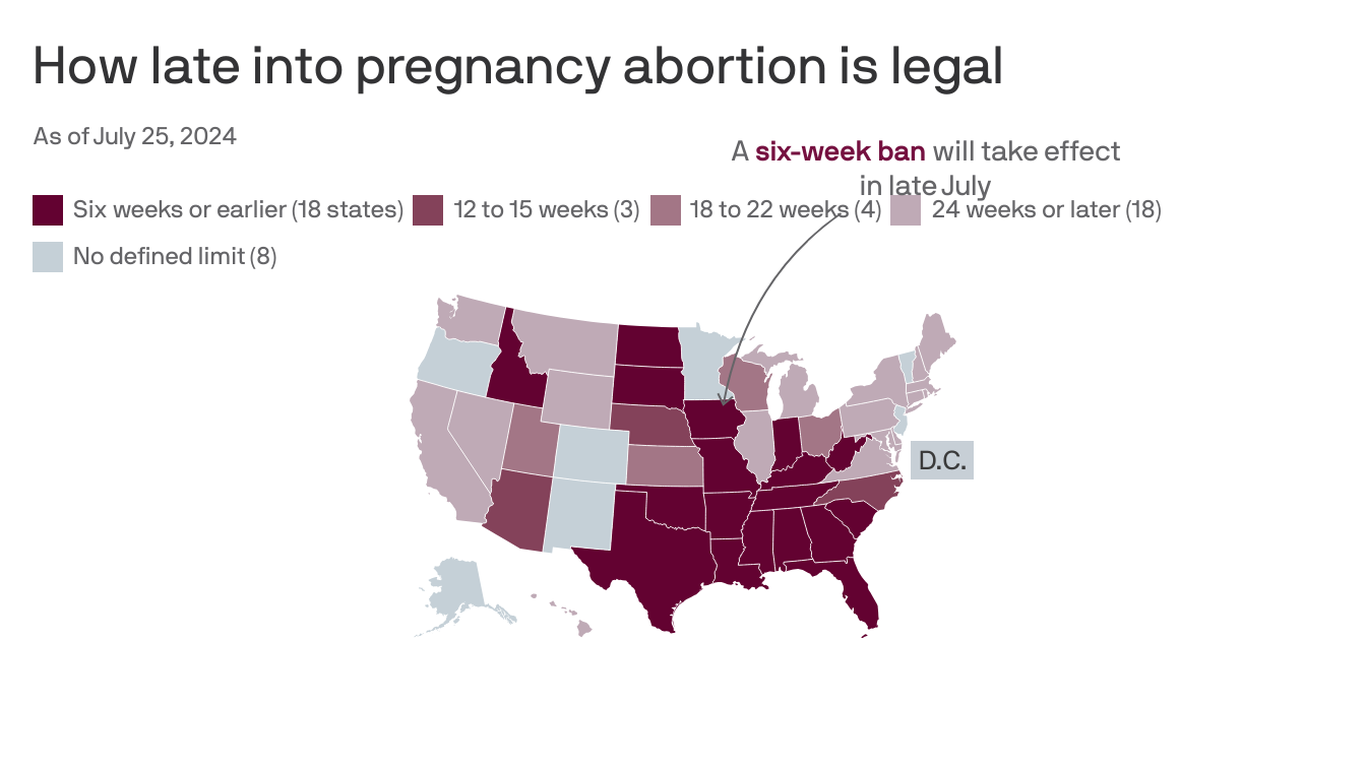
Iowa's Six-Week Abortion Ban: A Comprehensive Look
Iowa became the latest state to enact a six-week abortion ban on July 29, 2024. This law prohibits most abortions after about six weeks of pregnancy when cardiac activity is detected in an embryo. The new legislation came into effect despite legal challenges and opposition from various organizations.
Background
Until now, abortion in Iowa was available up to about 22 weeks of pregnancy. However, the Iowa Supreme Court reversed a temporary injunction blocking the most recently passed law last month, paving the way for this new restriction.
Impact on Abortion Access in Iowa and Surrounding States
The ban has led to an influx of patients from Iowa seeking abortion services in neighboring states such as Minnesota, Nebraska, and Illinois. According to Planned Parenthood North Central States, about 20% of their patients were from out-of-state as of 2023.
Exceptions to the Ban
The new law allows abortions in cases of rape, incest, fetal abnormality or when the life of the mother is in danger. However, these exceptions may not be enough for some women seeking abortion services.
Opposition and Legal Challenges
Organizations such as Planned Parenthood and the ACLU of Iowa have opposed this law, arguing that it infringes on reproductive rights. They have filed lawsuits challenging the constitutionality of the ban.
Consequences for Women's Health and Equity
The new abortion ban in Iowa has raised concerns about health inequities, particularly affecting working-class women, Black people, young people, and those living in rural areas. These groups are disproportionately affected by restrictions on reproductive healthcare.
Conclusion
Iowa's six-week abortion ban marks a significant shift in abortion access within the state and the region. The consequences of this law extend beyond Iowa, affecting neighboring states and women's health equity as a whole.


